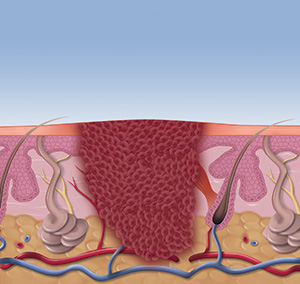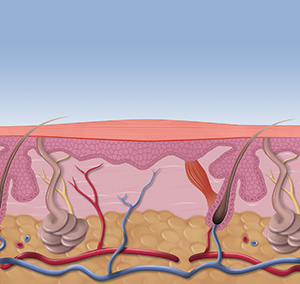What are Plantar Warts?
A plantar wart is a hard, grainy growth that usually appears on bottom of the foot, in areas where the most pressure is absorbed. Plantar warts occur when the human papillomavirus (HPV) makes contact with the skin on the soles of feet. The virus is usually introduced into the body through small cuts or openings on the bottom of the foot.
Types of Plantar Warts
Because they are spread through viral infections, those with weakened immune systems—such as children and senior citizens—are more likely to develop these warts. While most warts are visible, some plantar warts grow inwards—due to too much pressure—and form a callus. The two most common types of plantar warts include:
- Solitary wart: When there is just one single wart that increases in size and may develop into additional “satellite” warts.
- Mosaic wart: In some cases, multiple warts cluster together in one area—these warts are usually more difficult to treat.
Symptoms of Plantar Warts
While most cases of plantar warts can go away on their own with time, most people want faster relief. The goal of podiatric treatment for plantar warts is to completely remove the wart, not cover it up. Common warning signs of plantar warts include:
- Small, fleshy and rough growths develop
- Hard, thickened skin forms
- Formation of small clotted blood vessels
- Pain when walking or standing
- Tenderness in the affected area
Your doctor can usually diagnose a plantar wart by completing a simple physical exam. He or she may remove a section of the lesion to send out for further testing.

SWIFT Treatment
Swift wart treatment represents a pioneering solution in the realm of podiatry, offering an innovative approach to tackling persistent warts on the feet. Using the power of microwave technology, Swift treatment directs controlled energy to the affected area, targeting and eliminating the HPV virus responsible for warts. This non-invasive procedure is quick, typically requiring just a few short sessions, and boasts a high success rate. Furthermore, it spares patients the discomfort of traditional methods like freezing, salicylic acid, or surgical removal. With minimal post-procedure pain and no need for dressings, Swift wart treatment is rapidly becoming the go-to choice for many seeking an efficient, modern remedy for foot warts.



Treating Plantar Warts
If walking become painful or the warts are spreading, there are over-the-counter treatments available—though these often require multiple treatments and are still ineffective. When self-care and home remedies fail, visit your podiatrist. Your doctor may recommend these conservative, non-invasive treatments:
- Prescription-strength wart medications
- Cryotherapy (freezing the wart off)
- Immune therapy
- Minor surgery to cut away the wart
- Laser treatment

